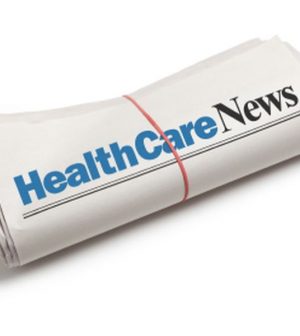- Recognizing the Signs of Hypothyroidism
- 10 Strategies to Overcome Insomnia
- Could Artificial Sweeteners Be Aging the Brain Faster?
- Techniques for Soothing Your Nervous System
- Does the Water in Your House Smell Funny? Here’s Why
- Can a Daily Dose of Apple Cider Vinegar Actually Aid Weight Loss?
- 6 Health Beverages That Can Actually Spike Your Blood Sugar
- Treatment Options for Social Anxiety Disorder
- Understanding the Connection Between Anxiety and Depression
- How Daily Prunes Can Influence Cholesterol and Inflammation
Health Highlights: May 7, 2021

U.S. Likely to Achieve July 4 COVID-19 Vaccination Target, But Challenges Remain
It’s likely that the United States will achieve President Joe Biden’s target of having at least one dose of a COVID-19 vaccine into the arms of 70% of adults by July 4, but there could be challenges later in the year.
Biden’s goal, which was announced Tuesday, may be reached as soon as the end of May, with 185 million Americans — 88% of the adult population — likely to be vaccinated by September, according to the Institute for Health Metrics and Evaluation (IHME) at the University of Washington, CNN reported.
However, vaccine demand may then start to wane due to vaccine hesitancy, the institute suggested.
That may hamper efforts to achieve immunity — either through vaccination or previous infection — in 70% to 85% of the total U.S. population, a rate that experts say is required to control the spread of the new coronavirus, CNN reported.
If that level of immunity isn’t reached, it could open the door for new variants to cause virus transmission to “rapidly and explosively” rise, the IHME noted.
Strategies that could encourage more people to get vaccinated include incentives, conveniences and requirements such as cash, workplace clinics and mandatory shots for certain situations, the findings of a Kaiser Family Foundation poll of more than 2,000 adults published Thursday suggest, CNN reported.
For example, 3 in 10 respondents who don’t want to get vaccinated immediately said they would be more likely to do so if vaccination was available somewhere they normally go for health care or if they only needed one dose.
Others said they’d respond to employer benefits such as paid time off for the vaccine and recovery, financial incentives, or if vaccination was required for flying, international travel or attending sports events and other large gatherings, CNN reported.
Copyright © 2026 HealthDay. All rights reserved.










